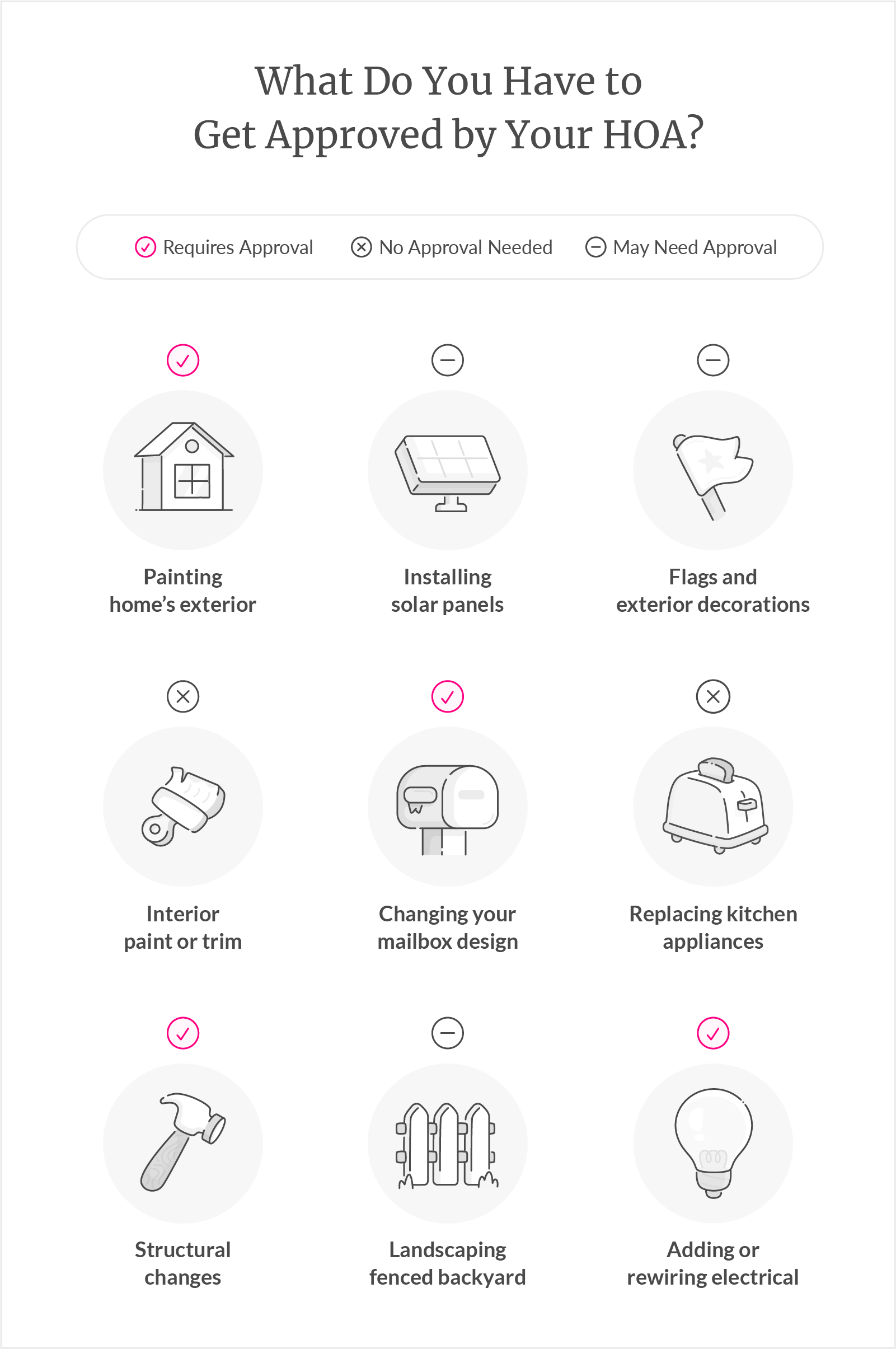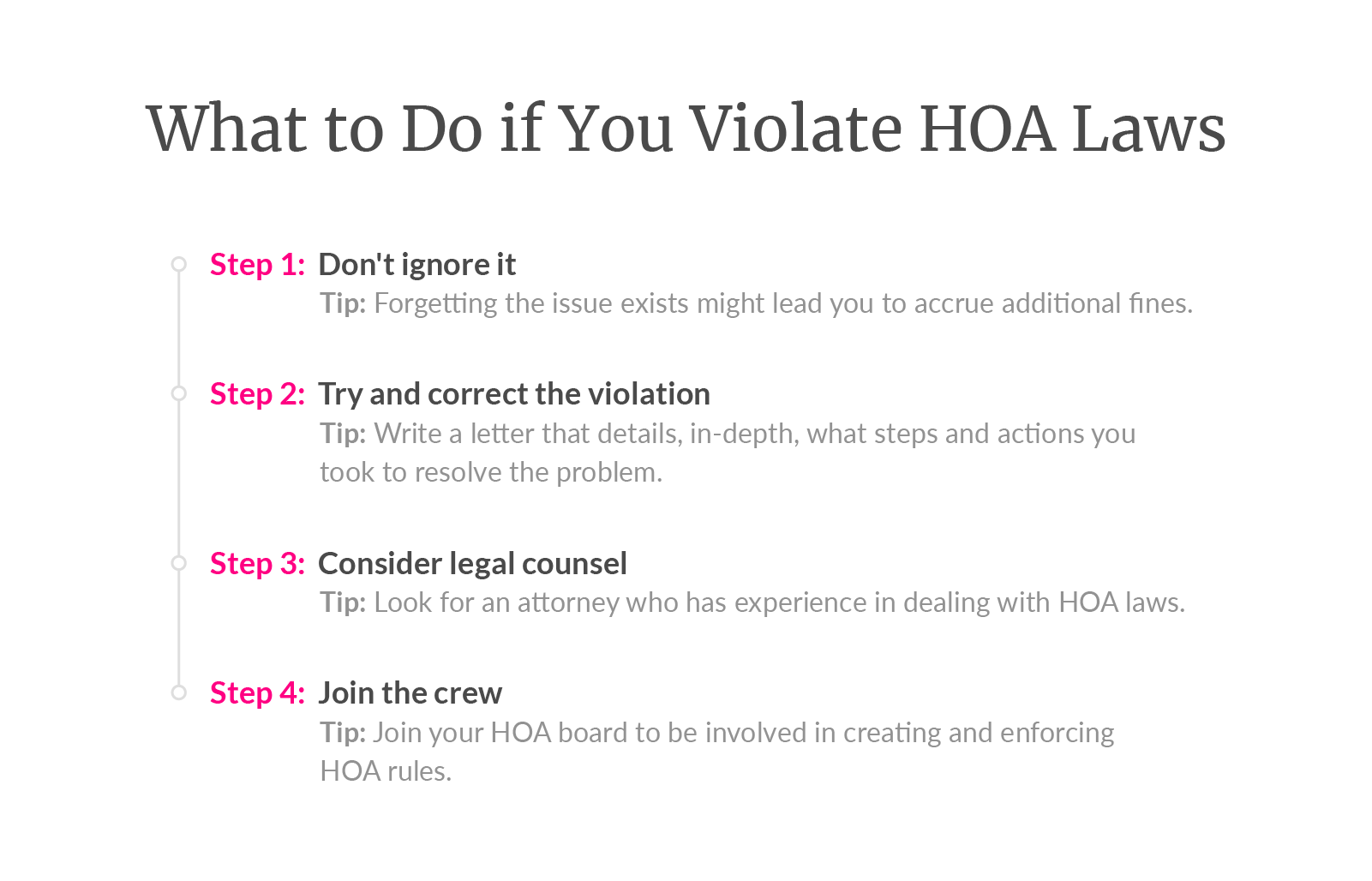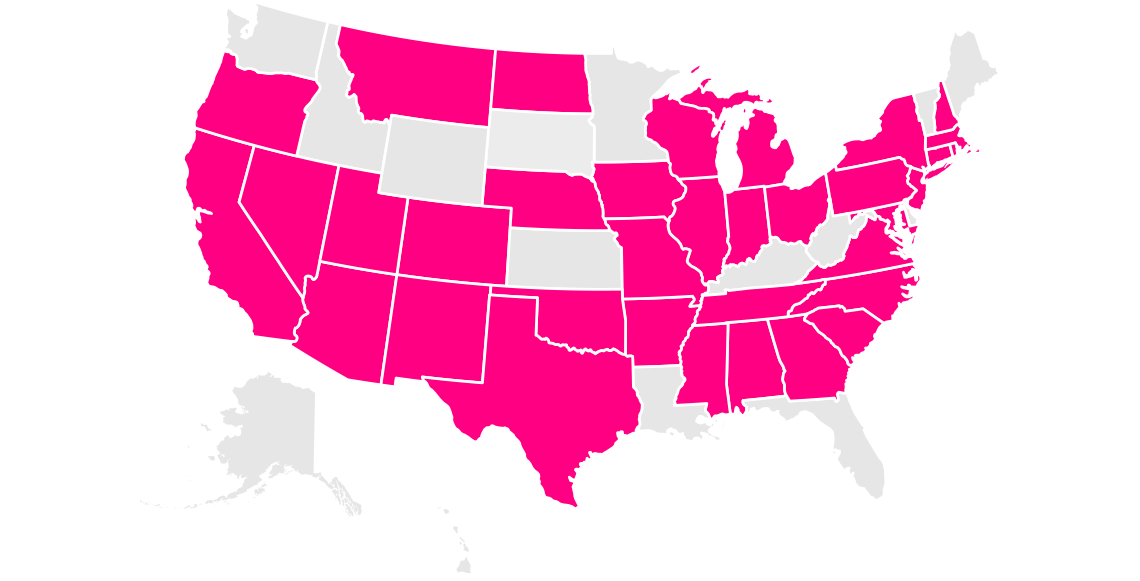What's the Deal With Homeowners Association Rules?
Here’s what homeowners should know about the ins and outs of the most common HOA rules.

Here’s what homeowners should know about the ins and outs of the most common HOA rules.

As you hunt for a new place to live, you might find yourself drawn to a home in a community with a homeowners association, better known as an HOA.
An HOA includes a board of directors of fellow homeowners who are in charge of maintaining a neighborhood’s quality of life. To that end, they’re also responsible for developing and enforcing HOA rules by which you and your neighbors will need to abide.
In this comprehensive guide, we will cover common HOA rules and violations, the benefits of homeowners association rules, and how HOA rules combined with homeowners insurance can help protect your own quality of life.
A homeowners association or HOA is a group of community members who help manage and maintain quality of life by enforcing rules and overseeing a neighborhood or complex.
Members of the HOA include a board of directors composed of fellow neighbors, often voted on by residents.
The HOA is responsible for collecting dues, which often go toward amenities, trash collection, and property maintenance. The group is also committed to enforcing the community’s rules and regulations—everything from keeping noisy neighbors in check to setting standards for landscaping and your home’s exterior appearance.
| Areas | Common Rules |
|---|---|
| Resident behavior | Trash disposal protocols Property maintenance Noise ordinances |
| Pets | Breeds and sizes Total number allowed Common area restrictions |
| Home projects | Structural updates Exterior additions Exterior, roof color/materials |
| Vehicles and parking | Total number of vehicles Restrictions on boats, RVs, and commercial vehicles Designated parking areas |
| Renting property | Restrictions on subletting Permission and protocol requirements |
| Landscaping | Curb appeal maintenance Restrictions on foreign or illegal plants Lawn maintenance |
Homeowners association rules are regulations defined by community members and may include local, state, and federal laws that govern the neighborhood. They may cover everything from parking to pets.
You can find your particular homeowners association rules in the Declaration of Covenants, Conditions, and Restrictions (CC&R) and community bylaws, which we will cover next.
CC&Rs serve as the master deed that outlines the HOA rules and regulations. If you are unsure of your ownership rights, you can refer to the CC&Rs.
CC&Rs pertain to your guidelines, restrictions, and responsibilities as a homeowner, and the role of the association and board members. The terms in your homeowners association’s CC&Rs aren’t just gentle suggestions—they’re binding, and violating them can come with serious consequences.
HOA bylaws basically outline how the community and association should function.
The community votes for the HOA board of directors. The bylaws in place define how the leaders operate. Bylaws also provide members with the information necessary to conduct business and run the organization.
You can find the following information in the bylaws:
The HOA enforces rules through legal documents by which residents must abide.
These documents are typically in a large packet given to residents before they purchase their home. New homeowners sign the paperwork, which says they agree to abide by the homeowners association rules. As with other important documents (like your insurance policy!) it always makes sense to actually read what you are agreeing to.
Enforcing the agreed-upon rules is part of the job of the HOA board. The HOA should have a set plan in place if someone breaks any bylaws, including financial and legal consequences such as loss of privileges and monetary fines.
Depending on the severity of the infraction, you might receive a warning, fine, or even an eviction notice. (At the very least, you might incur some dirty looks from your neighbors). Penalties that aren’t paid or actions not met could end in the HOA placing a lien on your home until you’re paid up. Your property might also be forced into a foreclosure case.
As a homeowner, you should have received a copy of the HOA rules and regulations when you closed on your property.
If you are unsure where to find your HOA bylaws and CC&Rs, you can hunt for them at the following places:
These rules aren’t in place to cramp your style (though some homeowners might indeed find them a little restrictive). Here’s why HOA rules, and an HOA in general, can be beneficial:

Let’s break down some of the most common homeowners association rules.
Note: The following restrictions are not listed in any particular order, and may vary by state and local community. Think of what’s below as an overview of certain rules and regulations you might encounter.
Most homeowners associations have restrictions regarding changing the appearance or actual structure of your home. This is because the HOA prefers to keep the appearance of homes in the neighborhood consistent—if not in architectural style, then at least up to a certain standard of curb appeal.
You might have an amazing personal aesthetic, but painting your property black and installing neon disco balls on the roof might shake up the surroundings in a way that not everyone appreciates.
Below are some common design decisions that will most likely need to be approved by your HOA:
If you plan on altering any exterior or structural elements of your home, chances are you will need HOA approval. That said, if all you’re looking to do is paint a bedroom or change the carpeting, there’s no need to ask for the green light (unless you’re simply looking for a bit of interior decorating advice).
The homeowners association is a community organization designed to uphold a quality living environment, but that comes with a cost.
Residents can expect to pay monthly, quarterly, or annual fees that go toward maintaining the neighborhood or complex, as well as building structures and amenities.
No one is exempt from paying HOA fees—not even if you ask really, really nicely—and your HOA’s board will make sure you pay consistently and on time.
Among the most common HOA regulations are those concerning landscaping. HOAs create landscaping rules to ensure that homes in the neighborhood maintain a basic overall curb appeal. In other words, they exist to prevent you from turning your front lawn into a miniature golf course or populating it with 500 garden gnomes.
Common HOA rules around landscaping include:
If you are living in an HOA community, there might be restrictions for pet-friendly plants, trees, and other greenery.
Since your HOA is responsible for keeping your community pleasant and livable, there are plenty of HOA rules surrounding noise management.
The HOA board determines designated hours where sound must be limited. Many city governments also have specific noise ordinances. If you’re in the habit of throwing boisterous parties (or using your living room for practice sessions with your Grateful Dead cover band), a community governed by an HOA might not be for you.
As a resident of a condo or single-family community with an HOA, you might experience certain restrictions when it comes to parking and vehicles.
Your HOA can limit how many vehicles you can keep on your property, and whether or not you can store commercial vehicles, boats, and RVs on-site.
The homeowners association might even have designated parking spaces for residents and guests. Parking in the wrong place might get your vehicle towed.
And hold your horses when you’re coming and going! Speed limits are also set by the HOA but enforced by law enforcement.
The HOA is responsible for keeping residents comfortable and maintaining a safe environment for everyone, which could mean limiting the breeds, sizes, and number of pets you own.
As a pet owner you are also expected to follow certain guidelines, especially for dogs in common areas. Those might pertain to picking up dog waste, keeping your pup leashed, and walking your pet in designated areas.
Looking to rent out your home? You may have to go through your HOA first.
In order to rent out your space you may need written permission from the board of directors and even the property management company. You might have to join a lengthy waitlist for approval. Definitely don’t buy property in a complex with an HOA if your goal is to Airbnb your condo or home for extra cash (and keep in mind that home insurance providers limit coverage for home shares).
Most HOA rules require that you break down boxes and dispose of waste properly. Homeowners can get in major trouble with the board of directors if they dispose of certain items into the neighborhood dumpster.
Some communities also have restrictions on when you can put out your trash cans for pickup.
Are you searching for more HOA resources?
The following resources further explain HOA rules and guidelines.
Homeowners association rules and regulations are not set in stone and the HOA board can change or add rules.
However, if the proposed rules significantly alter any governing documents, then a vote among community members is required.
The good news is that homeowners do have influence over how the neighborhood operates.
Unhappy with new rules? You can let your voice be heard by attending meetings and participating in HOA rule discussions. Democracy in action!
While the community bylaws and regulations are legally binding, the police can’t enforce HOA rules.
These restrictions are considered to be civil matters between homeowners and are to be disputed at a community level via mediation or even civil court.
However, if the issue overlaps with other laws, then the police can get involved. Examples include city noise ordinances, speed limits, or parking violations.

You probably didn’t set out to violate an HOA rule, but accidents happen.
Because your community has HOA bylaws and CC&Rs in place, you might receive a written warning, casual call, or even a formal meeting regarding your mishaps.
Don’t fret—the HOA won’t sell your property for violating a minor rule, but they can initiate fines. Keep reading to learn how to respond if your HOA says you broke a rule.
Address the issue head-on. As with most things in life, pretending the problem doesn’t exist will not make the situation any better.
In fact, many CC&Rs include a stipulation that additional fines will accrue for each day the rule remains broken. A simple $25 fee could easily end up snowballing into hundreds of dollars in penalties.
It’s important to document the steps you have taken to correct the violation. You can write a detailed letter that outlines what you have done to resolve the issue. To avoid any confrontation, be as open and honest as possible.
Don’t forget to include images to support your case, if applicable. The more evidence you show the HOA that you’ve taken steps to correct the violation, the better.
If you believe you are being wrongly penalized or are unsure of your rights as a homeowner, it might be time to seek legal counsel.
Individuals who believe their HOA isn’t following the appropriate guidelines should contact an attorney. When seeking legal advice, make sure the attorney has a deep understanding of homeowners associations and HOA laws.
Looking to get more civically involved? Hoping to make changes in your neighborhood? You can lend a helping hand by volunteering for a homeowners association board position in hopes of making a change.
Not only are you working to improve the community, but you will also have a bigger say in shaping the community rules. Plus you’ll earn the fear and respect of your neighbors, who will be forced to call you “sir,” or risk incurring a fine. (Kidding.)
Insurance policies are necessary to protect your home while you comply with HOA rules.
The homeowners association has its own master insurance policy to protect you from paying any fees pertaining to common area liability claims. But your HOA’s insurance policies does not protect anything inside your actual home.
That’s where your personal insurance policy comes into play.
Condo insurance protects against damage to internal walls or personal belongings, and also covers liability issues that happen inside your unit.
Homeowners insurance protects against damage to the interior and exterior of your home and personal items, and also covers on-site liability.
Obtaining an insurance policy is required by most homeowners associations. Make sure you check out Lemonade Homeowners insurance to protect yourself and your property. Get your quote in minutes, without the hassle of paperwork—just click the pink button below to get started.


Arizona, California, Colorado, Connecticut, Georgia, Illinois, Indiana, Iowa, Maryland, Massachusetts, Michigan, Missouri, Nevada, New Jersey, New York, Ohio, Oklahoma, Oregon, Pennsylvania, Tennessee, Texas, Virginia, Washington, D.C. (not a state…yet), and Wisconsin.
Please note: Lemonade articles and other editorial content are meant for educational purposes only, and should not be relied upon instead of professional legal, insurance or financial advice. The content of these educational articles does not alter the terms, conditions, exclusions, or limitations of policies issued by Lemonade, which differ according to your state of residence. While we regularly review previously published content to ensure it is accurate and up-to-date, there may be instances in which legal conditions or policy details have changed since publication. Any hypothetical examples used in Lemonade editorial content are purely expositional. Hypothetical examples do not alter or bind Lemonade to any application of your insurance policy to the particular facts and circumstances of any actual claim.